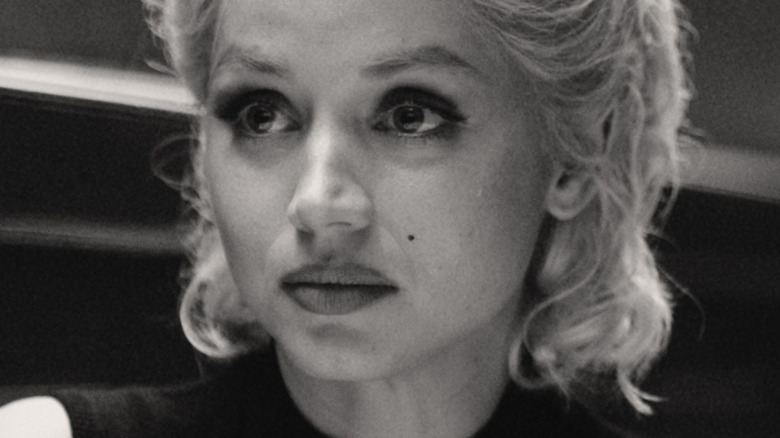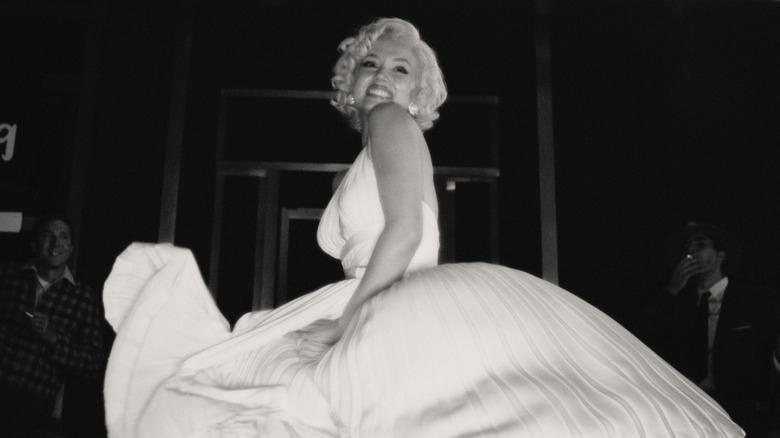How Historically Accurate Is Ana De Armas' Blonde On Netflix?
"Blonde" premiered to Netflix on September 28, 2022 after a limited festival and theatrical run earlier in the month. The film chronicles the life of Norma Jeane Mortenson, better known as Marilyn Monroe. Though, rather than pulling directly from Monroe's life experiences, "Blonde" is based on a novel by Joyce Carol Oates.
Critical responses to "Blonde" were mixed following its festival premiere. Some reviewers criticized its difficult subject matter, while others appreciated its unconventional approach to real-life history. Nearly every critic, however, praised Ana de Armas' performance as Monroe. In fact, Captain America actor Chris Evans couldn't tell de Armas and Monroe apart the first time he saw her in the role. Oates too is a fan of "Blonde" — In her assessment of the film, she commended Andrew Dominik's adaptation of her work, in addition to de Armas' acting.
The relationship between "Blonde" and its subject, then, is complicated. Whereas de Armas embodies Monroe with what many have characterized as pinpoint accuracy, the film's very basis is a work of literary fiction. Plenty of viewers are doubtlessly wondering, therefore, just how faithful "Blonde" is to Monroe's real-life story.
Blonde is a work of fiction
Leading up to the premiere of "Blonde" on Netflix, Smithsonian Magazine published a piece intended to break down the film's precise degree of historicity. Author and American history Ph.D student Grant Wong determined that "Blonde" is altogether not a historical account of Norma Jeane Mortenson/Marilyn Monroe's life, but an attempt to depict truths about her in a poetic, rather than literal, fashion. This means that, rather than pulling directly from her real-life experiences, much of what's on-screen is invented, with the intent of delving into the meaning behind or interrogating aspects of Monroe's life and persona.
Director Andrew Dominik himself further explained in an interview with the L.A. Times that, while authentically representing Monroe played into the making of "Blonde," adapting author Joyce Carol Oates' book was his priority. "I've read everything there is to read about Marilyn Monroe," Dominik said. "I've met people that knew her. I've done an enormous amount of research. But in the end, it's about the book. And adapting the book is really about adapting the feelings that the book gave me."
So, while parts of "Blonde" may resemble things that actually happened to Monroe, the film is wholly a work of fiction, and in no way a historical retelling of Mortenson's real life. Rather, interested viewers can always use the film as a jumping off point to find out more about what happened to Monroe during her lifetime.

